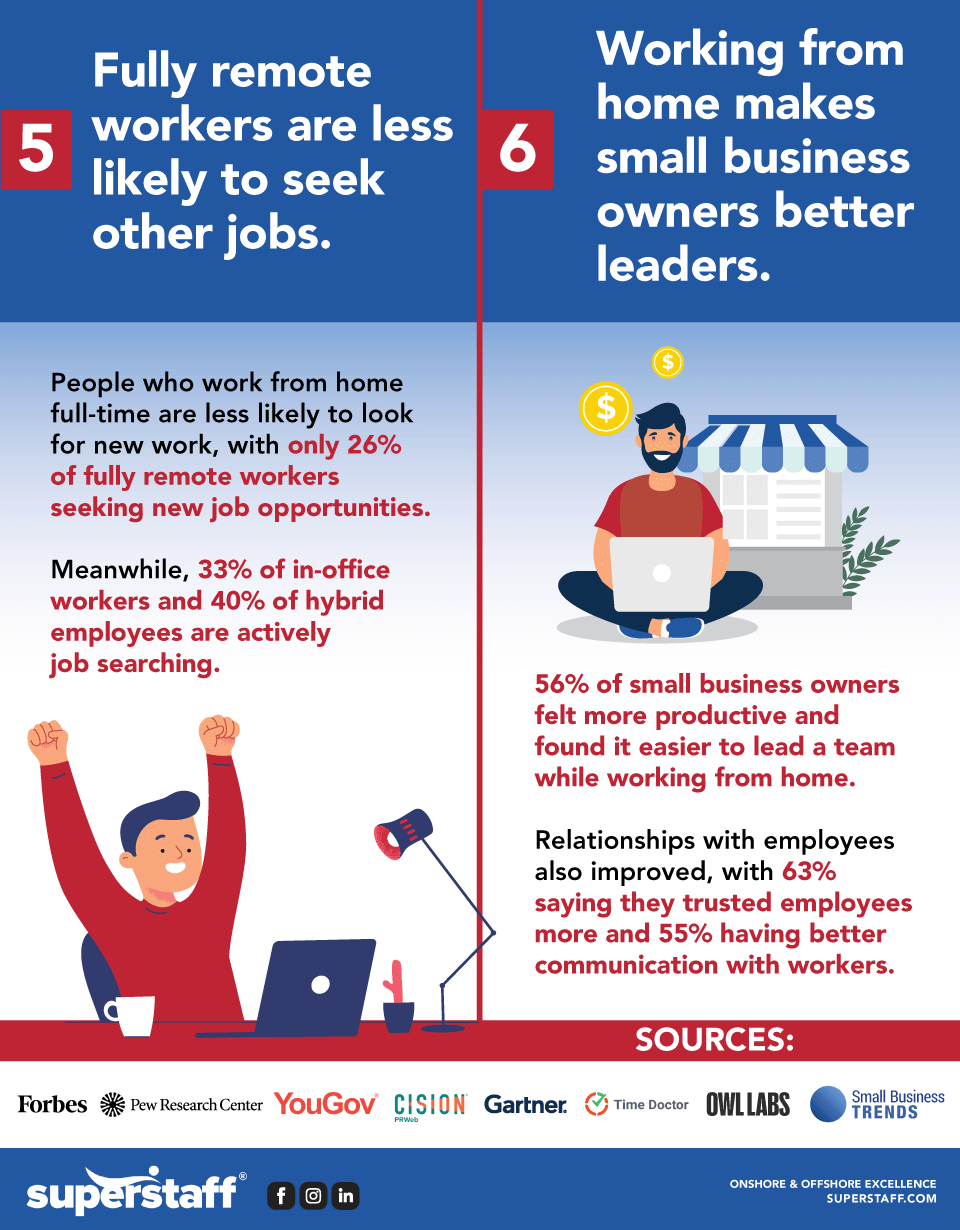Find the Best Companies Hiring Remote Professionals Now
Find the Best Companies Hiring Remote Professionals Now
Blog Article
How to Develop a Successful Group of Remote Professionals
In today's progressively electronic landscape, the capacity to develop a successful team of remote experts is important for organizations aiming to flourish. It is the subtler aspects-- like supporting a natural business society and promoting constant knowing-- that can genuinely set a remote team apart.
Define Clear Goals and Expectations
Frequently developing clear objectives and assumptions is necessary for the success of a remote group (Remote Professionals). Without these components, staff member may experience confusion concerning their duties, duties, and the total goals of the project. This ambiguity can bring about lowered efficiency, misaligned efforts, and ultimately, project failure
To specify clear objectives, it is vital to employ the wise requirements-- Particular, Measurable, Possible, Appropriate, and Time-bound. This technique ensures that each objective is well-defined and can be effectively connected to all staff member. It is crucial to align specific goals with the overarching vision of the company, promoting a sense of objective and dedication among group members.

Foster Effective Communication

Routine check-ins and group conferences can help maintain a strong interaction circulation, permitting members to share progress updates and talk about any type of barricades they may experience. It is also vital to acknowledge that various people may have varying interaction styles. Understanding and fitting these differences can bring about even more significant interactions and an extra cohesive group dynamic.
Furthermore, quality is necessary in all types of communication, whether composed or spoken. Motivate staff member to verbalize their concepts succinctly and to look for clarification when needed. This technique minimizes misconceptions and makes certain that everyone gets on the very same page. By focusing on effective communication, remote groups can enhance performance, strengthen relationships, and produce an extra inclusive work setting, ultimately causing better success in accomplishing typical objectives.

Use the Right Tools
To support efficient interaction within a remote team, it is essential to utilize the right devices that assist in collaboration and improve process. The option of tools can considerably affect efficiency, guaranteeing that staff member stay linked and engaged regardless of geographical ranges.
Begin by applying task monitoring software program, such as Trello or Asana, to arrange jobs, set target dates, and track development. This fosters liability and supplies exposure right into each participant's contributions. Additionally, communication systems like Slack or Microsoft Teams supply immediate messaging capacities, allowing real-time discussions and fast decision-making.
Video clip conferencing tools, such as Zoom or Google Meet, are important for face-to-face communications, which assist build relationship and enhance relationships amongst employee. Paper sharing and storage options like Google Drive or Dropbox guarantee that vital data are editable and easily accessible by all team participants, promoting partnership on tasks.
Incorporating these devices effectively produces an atmosphere where remote specialists can grow. By selecting the best technology, organizations can boost communication, enhance project administration, and inevitably attain their objectives more efficiently.
Develop a Solid Company Culture
Creating a solid Learn More Here business culture within a remote team is vital for fostering involvement and loyalty among workers. A distinct culture offers a sense of belonging and shared purpose, which is crucial when staff member are distributed across various locations. To grow this society, leaders ought to establish clear worths and assumptions that resonate with employees, ensuring that every person recognizes the objective and vision of the organization.
Normal interaction is important in reinforcing this society. Using video telephone calls, team meetings, and casual check-ins can assist maintain links and promote openness. Furthermore, commemorating accomplishments, both little and large, reinforces a society of recognition and recognition.
Motivating group collaboration through online systems not only improves performance but additionally promotes interpersonal connections - Remote Professionals. Organizing digital team-building activities can even more reinforce bonds amongst team members, making them feel extra incorporated into the company
Lastly, it is necessary to pay attention to worker comments and adapt as required. By showing that their voices issue, leaders can build trust and commitment, eventually creating a thriving remote job atmosphere where employees really feel valued and involved.
Encourage Continual Discovering and Advancement
A strong company culture prepares for motivating continuous understanding and advancement within a remote team. By cultivating an atmosphere that values growth, companies can empower employees to boost their skills, adjust to brand-new challenges, and ultimately add more properly to team objectives.
To promote constant learning, take into consideration executing routine training sessions, workshops, and webinars that straighten with both specific profession objectives and organizational requirements. Take advantage of technology to help with access to e-learning systems, guaranteeing that sources are readily available for remote employee.
Urge knowledge sharing by establishing mentorship programs and producing discussion forums for employees to exchange insights and ideal practices. Acknowledging and compensating staff member that actively take part in discovering campaigns enhances the value of growth and motivates others to comply with match.
Moreover, carrying out regular feedback sessions can help identify skill gaps and areas for enhancement, permitting tailored development plans. By prioritizing continual discovering and advancement, remote groups can grow a culture of durability, development, and adaptability, which are essential for browsing the intricacies these days's company landscape.
Conclusion
In verdict, the establishment of an effective remote group depends upon the assimilation of clear goals, reliable communication, appropriate tools, a robust business culture, and continual discovering opportunities. By lining up individual payments with organizational goals and fostering an atmosphere of visibility and cooperation, remote specialists can thrive. Remote Professionals. The implementation of these methods not only enhances group communication however also drives inspiration, inevitably causing improved efficiency and success in a link remote working landscape
It is the subtler elements-- like supporting a natural business society and advertising continual knowing-- that can truly establish a remote team apart.Effective interaction is the foundation of a flourishing remote group. By focusing on effective communication, remote groups can improve productivity, reinforce connections, and develop a much more inclusive job environment, inevitably leading to greater read the article success in accomplishing typical objectives.
Developing a strong company culture within a remote team is necessary for cultivating engagement and loyalty among employees.In final thought, the facility of a successful remote team pivots on the integration of clear goals, efficient communication, suitable tools, a robust business society, and constant discovering opportunities.
Report this page